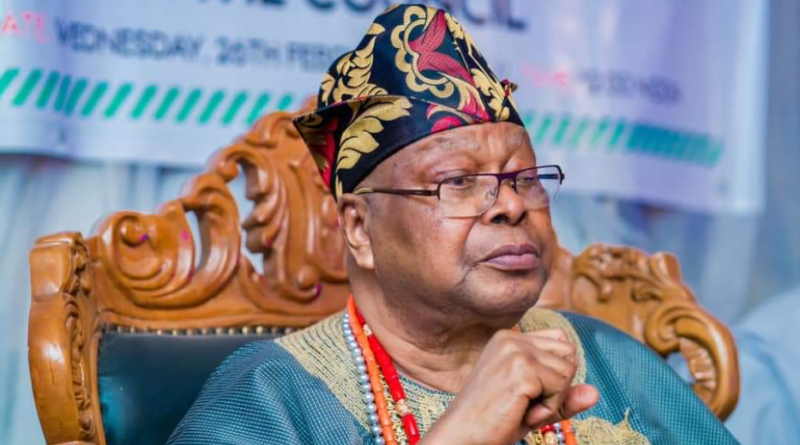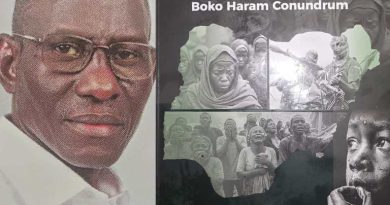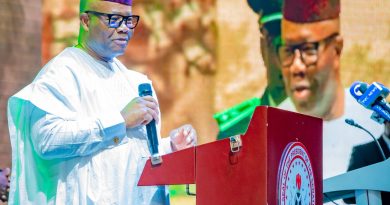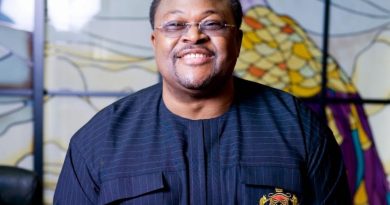Three Deaths: Gainers And Losers-By Bolanle BOLAWOLE
turnpot@gmail.com 0705 263 1058.
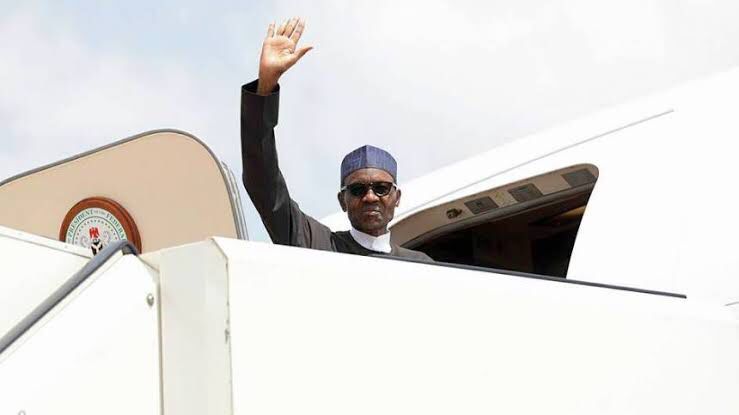
All the same, the Ijebus will rue the loss of their influential oba at this point in time, especially with their push for a state of their own. The National Assembly is going round gauging the pulse of the people and collecting memoranda for a review of the Constitution. The Ijebus have been vociferous in their demand for Ijebu state and their monarch had led the way. Recently, he was quoted as saying that the incumbent, President Bola Ahmed Tinubu, has promised him the Ijebu state of his dream. Now that he is gone, who leads the Ijebus, especially with all the controversies that usually trail state creation exercises? The demand for Ijebu state has not been an exception. THE ONDO STATE CONNECTION As I made to scribble this, a friend called and asked if I was aware of the danger that the demand for an Ijebu state portends for our own long-existing Ondo state. I wasn’t and I told him so. He then volunteered that Ilaje, the oil-producing part of Ondo state, has been included in the proposed Ijebu state by some of its canvassers. “How on earth is Ilaje part of Ijebu?”, he asked, before adding that if the canvassers succeed, then, they would not only have denied Ondo state its status as an oil-producing state, and of the resources and privileges appertaining therefrom, but would also have rendered it landlocked. I reasoned that it was far-fetched that Ilaje could be hijacked from Ondo state into Ijebu state but he warned me to perish the thought! “When they accuse Tinubu of favouring the Yoruba with appointments – which is not true, anyway – the majority of those appointees are from Ogun state. Many of the appointments that go to Lagos actually are cornered by the Egbas and Ijebus”, he said. The inference here is that the Ijebus can leverage the many influential people they command around Mr. President to shortchange a marginalised state like Ondo. IJEBU STATE VERSUS REMO STATE If that appears superfluous, the tango between Ijebu and Remo over the new state is not. Antagonists on both sides are oiling their “war” machines. Some powerful politicians, like Otunba Gbenga Daniel, former two-term governor of Ogun state and now a serving senator representing Ogun East senatorial district, appear already caught in the crossfire of how to resolve the issues in contention. What should the new state be called: Ijebu state or Ijebu-Remo (patterned after Akwa-Ibom)? Where will the capital be located: Ijebu-Ode or Shagamu? Taking a cue from the old colonial arrangement of provinces as administrative units, the Ijebus want the then Ijebu province to now become Ijebu state with headquarters at Ijebu-ode. Remo would have none of that as they do not want to be part of any Ijebu state. They want their own Remo state with headquarters at Shagamu. Note that the Remo people have thrown overboard the Ijebu hitherto attached to their name (Ijebu-Remo) and are now simply known, called and addressed as Remo! They argue that they are an entirely different people from the Ijebus: that while the Ijebus have said they migrated from Sudan, the Remo people migrated from Iremo quarters in Ile-Ife and have retained and maintained their affinities with their roots to this day. ARE THE YORUBA MONOLITHIC? It can get very interesting! Egbado people in the same Ogun state have jettisoned that name and are now known, called and addressed as Yewa. In my own native Ogho (Owo), the Ijebu-Owo people have yanked off the “Owo” in their age-old name and now call themselves Ijebu! And my mind went to my editor and mentor, Comrade Nojeem Jimoh, who posits that the Yoruba are only Yoruba because there is Nigeria but that the moment we exit Nigeria and have our own Yoruba or Oodua Nation, we will all go back to what we used to be – Egba, Ijebu, Remo, Awori, Egun, Ekiti, Ogho, Ondo, Akoko, Akure, Ikale, Oyo, Ijesa, Okun, name it! It can get really scary! The various nationalities making up what we know today as Yorubaland fought, perhaps, the longest inter-tribal war in history, from 1789 (the year the French Revolution started) to 1893 (the year the Franco-Russian Alliance was signed in Europe), a total of over 104 years. Those wars – and the lack of unity among the various Yoruba nationalities – accounted in a large measure for why they were easily worsted by the invading British colonial forces and also why Ilorin was not retrieved from the Fulani jihadists. The sentiments expressed here must, however, not be taken to mean opposition to the realisation of a Yoruba or Oodua nation but a clarion call that, even after its realization, we have work to do! We have mountains to climb! BUHARI: HERO OR VILLAIN? As would be expected, Buhari’s demise has been received with mixed feelings. There have been the hypocrisy of the political class evidenced by the torrents of tributes poured on the late president but the reaction of many ordinary citizens has been tepid and subdued, slightly different from what was demonstrated at the death of the vile dictator, Sani Abacha. Had Buhari ended his political career when he was toppled as military Head of State in 1985; had he not insisted on being a civilian president; and had he not succeeded in that endeavour, he would have died more of a national hero and would have been better celebrated than anything the ruling class has accorded him now. But he squandered virtually all the goodwill he brought to the Presidency. His death, however, portends political consequences. All those angling for his endorsement to reap political advantage in 2026/2027 must now rue what lies ahead. Those who shout from the rooftop that they are Buharists, how market? Well, say no evil of the dead – because that is the inevitable end of all mortals. And no one is perfect! May the souls of the departed rest in peace!
Former editor of PUNCH newspapers, Chairman of its Editorial Board and Deputy Editor-in-chief, BOLAWOLE was also the Managing Director/Editor-in-chief of The Westerner news magazine. He writes the ON THE LORD’S DAY column in the Sunday Tribune and TREASURES column in New Telegraph newspaper on Wednesdays. He is also a public affairs analyst on radio and television.

